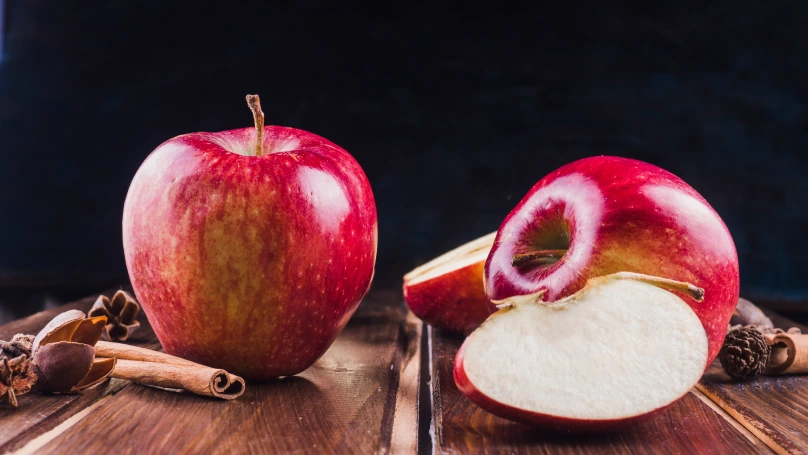Ever wonder if your favorite apple juice concentrate is vegan-friendly? At first glance, it does seem so after all, it comes from apples, doesn’t it? But the journey from orchard to bottle isn’t always as straightforward as it appears.
While apple juice concentrate itself is plant-based, the production process can introduce unexpected non-vegan ingredients. Some manufacturers, for apple juice concentrate supplier, use animal-derived clarifying agents like isinglass or gelatin to get that sparkling clear appearance in juices. In addition, some of the coatings used on apples before they are processed, such as beeswax or shellac, can also render the final product’s vegan status a bit of a gamble.
We’ll explore the ins and outs of apple juice concentrate production, expose the non-vegan potential additives, and help you to find those vegan-friendly products. Whether you’ve been vegan for a long time or just starting on your journey, it’s important to be aware of the differences so you may eat according to your beliefs.
So, let’s get serious for a moment: Is apple juice concentrate vegan?
Is apple juice from concentrate Truly vegan?
Imagine an apple, just plucked from a tree, its crunchy texture bursting with flavor. Now envision that apple’s flavor condensed into a thick, syrupy liquid—that’s apple juice concentrate. This concentrated ingredient is made by juicing apples and then evaporating most of the water, leaving behind a concentrated form of the fruit’s natural sugars and flavors.
It’s the espresso of apple juice: small in amount but gigantic in flavor. The procedure is simple, but a marvel of modern food science designed to make apple goodness accessible at any time. Apple juice concentrate is a particular favorite of the food industry used as a sweetener, as a flavor, or even as a base for reconstituted juice.
So what about vegans? Is this seemingly innocent ingredient hiding an animal-derived secret? Let’s examine it a little more closely.
Understanding Veganism
Veganism is a philosophy, a complete way of living, and a moral choice. Veganism is committed to avoiding, as far as is practicable and convenient all use of and causing harm to animals for food, clothing, or whatever else, says The Vegan Society. Therefore, vegans would see to it that they avoid not just meat, dairy foods, and eggs but also other things like leather, wool, and of course cosmetics tested on animals. The commitment to veganism is much more than just personal health, it extends to environmental issues and looking after animals to practice using the least resources to avoid environmental footprint and creating a more humane world.
Some clarifying agents that may be used when preparing fruit juice, for example, are derived from animals it may be necessary to read labels to ensure that whatever vegans choose to do won’t contravene their moral position, consequently there is a consciousness provided to individuals for making informed choices, therefore allowing a sense of responsibility and ownership for the consumption of the others
What Is Apple Juice Concentrate?
what is apple juice concentrate, a syrup product that results when most of the water content of apple juice is removed? Crystallizes natural taste and sweetness, hence creating a sweeter, more concentrated form of regular juice. It is primarily utilized in beverages and food as a natural flavor sweetener or booster.
Apple juice concentrate production is a process that includes multiple steps: picking ripe apples, washing, and crushing, and juicing and filtering to remove solids. The juice is filtered and then heated so that water is evaporated and will concentrate sugars and flavor. Concentrated juice is stored for extended periods and may be reconstituted later with water. It is cheap and convenient, and therefore it is utilized largely in the food industry.

The Basic Process: Vegan by Nature
The typical apple juice concentrate production method is a vegan’s utopia. Apples are harvested, pressed, and evaporated, without any animals involved at all. The cleaning of equipment would probably be done with water or plant material, and heat and filtration employed rather than animal products. Realizing this fact for Jake was a refreshing reprieve from his gelatin experience.
Most companies simply stick to the basics, as there are reasons the basic method is economical and efficient. The issue of veganism arises after the basics. Are there additives? Is the juice being clarified with something sneaky? These questions keep vegans on their toes, and we will discuss the potential pitfalls next.
Understanding Veganism in Food Production
Veganism is more than just refraining from eating meat, dairy, or eggs; it also signifies a commitment to remove cruelty and exploitation towards animals in all aspects of life including food production. Therefore vegans must pay attention to hidden ingredients that may contain animal parts in processed foods. For example, gelatin which is used as a gelling agent is derived from animal collagen and may be found in marshmallows and gummy candies. Casein is a protein from milk found in many processed foods and some soy cheeses.

Common Uses of Apple Juice Concentrate
Apple juice concentrate is a widely used, adaptable ingredient in many sectors of the food and beverage industry. Apple juice concentrate has natural sweetness, flavor, and longer shelf life making it a viable ingredient in a vast range of products. Below are some common uses:
- Beverages
- Baked Goods
- Dairy Products
- Confectionery
- Sauces and Condiments
- Baby Food
- Nutraceuticals and Dietary Supplements
- Home Cooking
Conclusion
In determining if apple juice concentrate is vegan, it was shown that apple, as a raw product is a plant product, however, the intervening steps may have a non-vegan component. Clearifying agents such as gelatin or isinglass and surface coatings like beeswax or shellac may be used, this may invalidate the vegan requirement.
If you lead a vegan lifestyle you must read the labels and look for guarantees to that effect in order to ensure that your actions align with your intentions to the minimal harm to animals and to the environment. You can also trust us if you are looking for wholesale fruit juice concentrate supplier.





